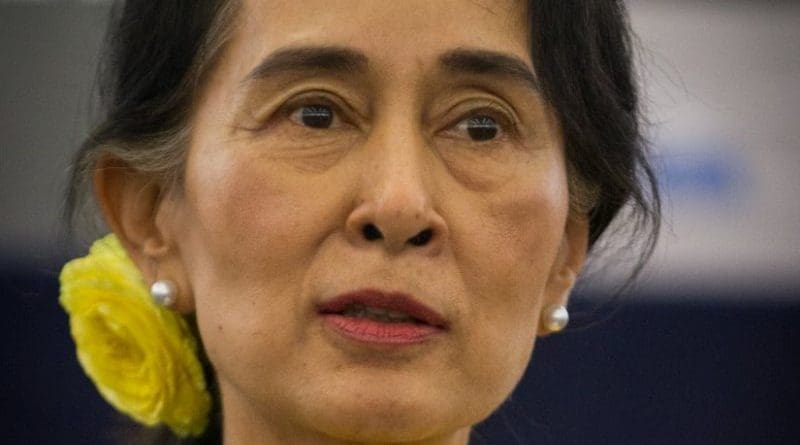Burma: Talks To Allow Suu Kyi Presidency Fail
By UCA News
By John Zaw
The transfer of power in Myanmar has hit its first major hurdle as negotiations appear to have broken down for the suspension of a clause of the constitution that bars Aung San Suu Kyi, the leader of the National League for Democracy from becoming president.
“We took time in the hope that we could negotiate with the military to suspend section 59[f],” a senior party official told The Myanmar Times on Feb. 29. “But now we accept that this can’t happen so we have given up on this plan,” the official said. “We’re reverting to our previous plan, which was to nominate a proxy president instead of Daw Aung San San Suu Kyi.”
The 2008 military-written constitution bans Suu Kyi from becoming president because she married a foreigner and her children are not Myanmar citizens. The 70-year-old leader reportedly said she would sidestep this issue by ruling “above” a proxy president.
Shay Ray Shu Maung, a Catholic and upper house Member of Parliament for the National League for Democracy in Kayah State, said the party still hopes for a Suu Kyi presidency. “We heard that there will be a [another] meeting between the military’s chief and Suu Kyi,” he said.
Suu Kyi’s party won a combined 390 of the 664 seats in the upper and lower houses of Myanmar’s national parliament during the Nov. 8 elections. This is sufficient for the NLD-dominated parliament to choose two out of the three presidential candidates. The military retains the right to nominate one candidate.
The union parliament on March 1 set new date for choosing presidential candidates on March 10. It had previously set the date for March 17.
The National League for Democracy has yet to reveal its nomination for the presidency.

